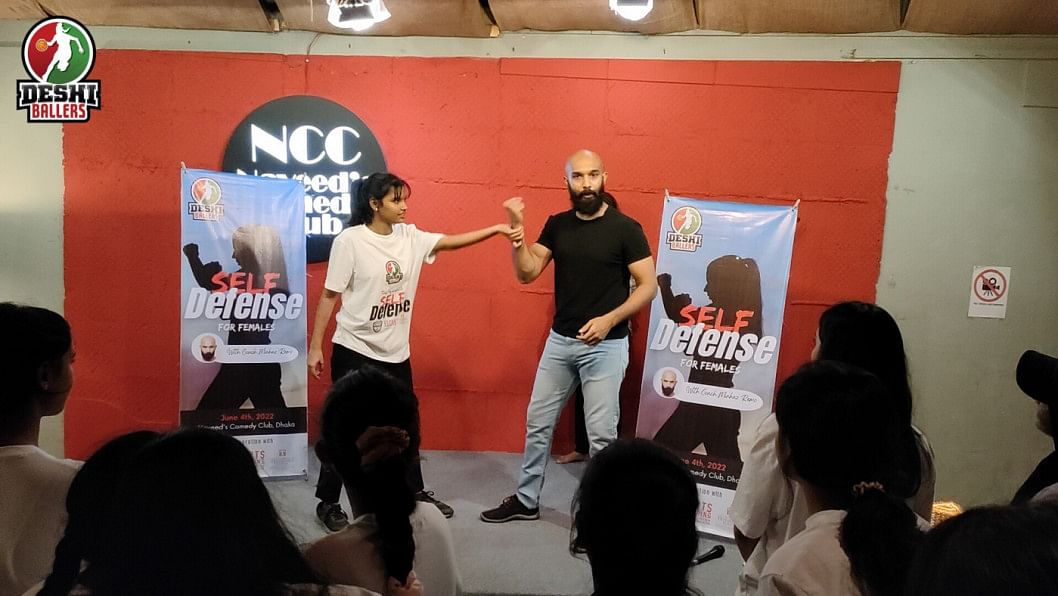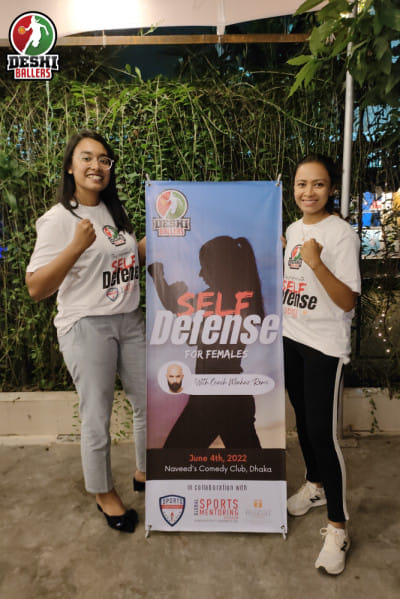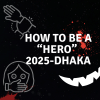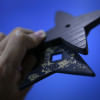Deshi Ballers host self defense class with coach Minhaz Remo

Known for promoting women's basketball, Deshi Ballers hosted a different kind of event last weekend. Staying true to creating awareness regarding women's safety and rights, this time they organized a self-defense class to help young females develop easy-to-use techniques such as awareness, assertiveness, and verbal confrontation skills in combination with safety strategies and physical techniques to prevent, resist and escape violent assaults faced commonly at home and on the streets.
The event was organized in collaboration with the Global Sports Mentoring Program. This program of the U.S. Department of State is administered by the University of Tennessee Center for Sport, Peace, and Society
Minhaz Remo is a performance and strength coach. He is a certified strength and sports nutrition coach under International Sports Science Association. He is also a 2nd degree black belt in ITF Taekwon-Do, winning several gold medals in national tournaments.
The 2-hour long event was open for females across all age groups. Participants included women attending from renowned educational institutions such as Green Herald, Sunbeams, Viqarunnisa Noon School and College, Brac University, North South University, University of Chittagong, as well as working women from organizations like Standard Chartered Bank, HSBC, Unilever and AISD. It also included two mothers who joined the class with their daughters.
The event had 3 segments: Open discussion with participants sharing life examples of situations when they faced harassment or felt unsafe; live demonstrations of how to escape common types of situations/attacks; and a Q/A session.
The session began with Coach Remo introducing himself to the participants and asking them what self-defense means to them. Followed by the introductory segment, Coach Remo asked if the participants could knock out someone followed by him testing their punches by wearing a boxing glove on his left hand. He then explained the concept of situational awareness - for example knowing how many exits are there in a place, the number of cameras present, etc.
Coach Remo said, "Self-defense isn't always about strength, it's mostly about thinking on your feet. There is always someone who is stronger than you, so rely on your wits, the art of fighting without fighting."

The next interesting information which participants learned was about weapons of opportunity. As carrying a knife or a pepper spray is illegal in Bangladesh, when participants are in a situation where they need to defend themselves, they must look for an improvised weapon which is available nearby such as objects made of metal, wood, plastic, glass, ceramic or any other materials capable of stopping an active threat.
After Remo explained what kind of situations to avoid and when to take action, the participants were taught a few techniques like using a palm strike, knee strike, bear hug release, wrist restraints release and hitting weak spots like the nose and chin. Participants also learned about some pressure points like the back of the neck, below the ears, etc. To know the techniques practically, the participants practiced them with one another. The entire session was very interactive.
Deshi Ballers co-founder Ashreen said, "Women in Bangladesh spend their entire life walking away from harassment because from a young age they are taught to stay quiet. Today I feel confident about facing any perpetrator head on. Extremely proud that through Deshi Ballers we could provide this learning to such a diverse group of girls in our community today."
Co-founder Monika commented, "I feel in every school there should be a self-defense class for young kids so that they can learn some basic moves to protect themselves. I am 26 years old but I never knew there are so many simple ways I can defend myself."
In the end, there was an open discussion where the participants shared experiences of facing harassment and situations where they felt unsafe. The session was very plaintive as some of them broke down while sharing their experience. One of them described they didn't only get harassed but also got mocked by their harasser because they could not fight back. These are the situations that most women in our country face, and they never get the chance to share them because of the fear of judgment. Everyone felt like it was a safe space for them to share their stories during this session.
Samanta Farahnaz, participant and employee at Brac, shared, "The important message that we learned today was that we shouldn't be playing the victim, we should always be trying to defend ourselves and we should not be afraid to make a scene when we have to."

 For all latest news, follow The Daily Star's Google News channel.
For all latest news, follow The Daily Star's Google News channel. 








Comments